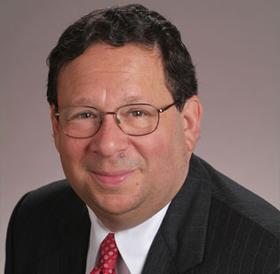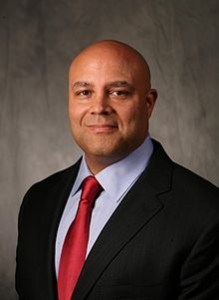Washington insiders are predicting Federal Communications Commission chairman Julius Genachowski will leave his position early in President Obama’s second term.
It cannot come soon enough, as far as we’re concerned.
One of the biggest disappointments of the Obama Administration has been the poor performance of a chairman that originally promised a departure from the rubber stamp-mentality that allowed Big Telecom providers to win near-instant approval of just about anything asked from the Republican-dominated FCC of the Bush Administration. If only to underline that point, former FCC Chairman Michael Powell joined Republican ex-commissioner Meredith Atwell-Baker on a trip through the D.C. revolving door, taking lucrative jobs with the same cable industry both used to oversee.
We had high hopes for Mr. Genachowski when he took the helm at the FCC — particularly over Net Neutrality, media consolidation, and predatory abuse of consumers at the hands of the comfortable cable-telco duopoly. Genachowski promised strong Net Neutrality protections, better broadband — especially in rural areas, an end to rubber stamping competition killing mergers and acquisitions, and more aggressive oversight of the broadband industry generally.
What we got was the reincarnation of the Cowardly Lion.
The Washington Post reviews Genachowski’s tenure during the first term of the Obama Administration and reports he has few unabashed supporters left. Telecom companies loathe Genachowski’s more cautious approach and consumer groups hate his penchant for caving in when lobbyists come calling. In short, another Democrat that talks tough and caves in at the first sign of trouble.
“His tenure has been nothing but a huge disappointment because he’s squandered an opportunity to give consumers the competitive communications market they deserve,” Derek Turner, head of policy analysis at public interest group Free Press told the Post. “If someone like him upholds compromise, it quickly leads to capitulation, which is what he’s done. He folds…to the pressure of big companies.”
Genachowski’s Record:
- Heavily promoted rural broadband and oversaw a review program measuring actual broadband speeds against those claimed by providers. But much of the money available for improving rural broadband has been separately awarded to “middle mile” and “institutional networks” that are not accessible to most consumers or businesses. Genachowki has heaped automatic praise on many of the phone companies winning broadband funding, despite the fact many of them are satisfied giving consumers no better than 4Mbps service;
- Reformed the outdated Universal Service Fund, which long outlived much of its usefulness, into a broadband expansion fund. But some unintended consequences have led to some rural providers suspending network upgrades because of funding uncertainties still unresolved;
- Approved a blockbuster merger deal between Comcast and NBC-Universal that included temporary “hard-won” concessions Comcast later admitted they were going to offer anyway – merger or not. The result is a new high bar for tolerating super-sized media consolidation with no serious consideration of the impact on consumers. The latest evidence: support for Rupert “Phone Hacker” Murdoch’s latest efforts to buy more newspapers in the United States;
- Rejected an AT&T/T-Mobile merger deal, but only after the Justice Dept. took the lead dismissing it as an anti-consumer, anti-competition nightmare. Within hours, Genachowski’s office issued a “me, too” press release condemning the deal he said little about earlier;
- Demanded a strong Net Neutrality framework to protect the open Internet, but utterly caved under pressure from politicians receiving hefty corporate contributions from AT&T and others. The resulting loophole-ridden “protections” do not apply to wireless, and the industry-approved compromise is now the subject of a lawsuit filed by some of the same companies that earlier applauded Genachowski’s flexibility;
- Genachowski handed out his direct phone numbers to the CEO’s of the top Big Telecom companies, and has been directly lobbied by those “super-citizens,” while ordinary consumers are stuck filing comments with the FCC’s arcane Electronic Comment Filing System. Genachowski also directed closed-door meetings be held on the subject of Net Neutrality with large telecom companies. These meetings were closed to the public with no consumer representatives on hand;
- Genachowski refused to reclassify broadband as a “telecommunications service,” which would give the agency clear-cut authority to oversee the service. Instead, he has stuck with former FCC Chairman Michael Powell’s odd interpretation of broadband as “an information service,” not subject to much review by the agency;
- Appropriately nixed Philip Falcone’s LightSquared venture, the biggest threat to GPS navigation around. But Genachowski’s controversial early boosting of the venture, including support for expedited special permission to launch the network without the usual scrutiny, resulted in an embarrassing about-face after long-standing critics’ fears of navigation interference were vindicated;
- In 2012, Genachowski’s cozy relationship with the industry reached whole new levels with unabashed support for Internet Overcharging schemes like usage caps and consumption billing, despite no evidence justifying them. The FCC has continued to ignore repeated requests for a review of these pricing schemes.


 Subscribe
Subscribe












